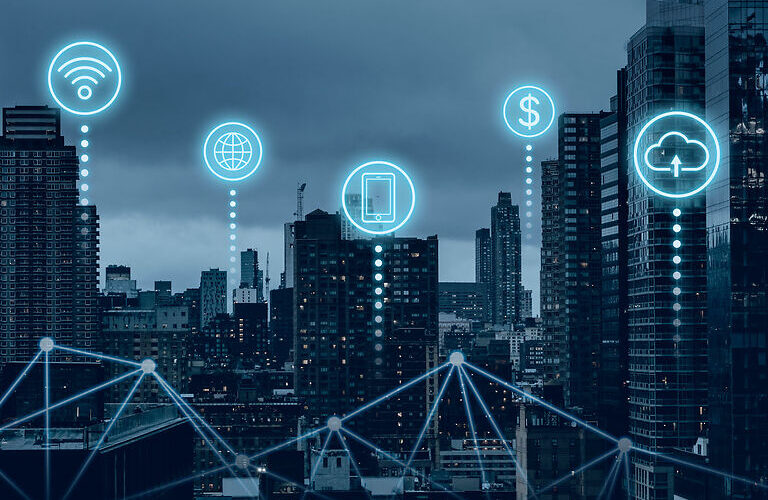Introduction
It refers to the next-generation industrial revolution led by artificial intelligence (AI), Internet of Things (IoT), robot technology, drones, autonomous vehicles, and virtual reality (VR). The term was first used by Klaus Schwab, the chairman of the forum at the Davos Forum in Switzerland in June 2016. At the time, Chairman Schwab said, “Just as the previous 1st, 2nd and 3rd industrial revolutions revolutionized the global environment, the 4th Industrial Revolution will be the driving force for renewing the global order.”
The 4th Industrial Revolution was:
- The 1st industrial revolution represented by steam engines and mechanization started in the UK in 1784
- The 2nd industrial revolution in 1870 when mass production using electricity began in earnest
- Computer information and automated production systems led by the Internet in 1969
Following the 3rd industrial revolution that was shown, it refers to an industrial change that is expected to build a virtual physical system that can automatically and intelligently control objects by integrating real and virtual through robots or artificial intelligence (AI).
Background
In the past, large discount stores have met the demands of various consumption. However, IT technology development has replaced large markets real estate with e-commerce. In the process, there was a change in real estate demand. In the past, easy-to-consumption places have increased demand for real estate. But the development of IT technology has dispersed the need for real estate. O2O Service industry development is a typical example. These technological developments are also related to the educational revolution. In the past, we had to go to school to get an education. However, the development of communication technology allows students to receive school education at home through the Internet even if they do not go to school. These changes contributed to the decentralization of real estate demand. O2O service is a kind of service that e-commerce through a smartphone. It is to consume through smartphone platform. In the past, people had to visit large markets to buy goods, but now they can easily purchase things through smartphones. This change in consumption has resulted in a change in lifestyle.
- Significance and Purpose of Research
Real estate prices are determined by the demand for logistics. The logistics revolution will decentralize the market for real estate. The characteristic of real estate is that real estate is immovable and is subject to speculation. However, it will stabilize real estate prices because the demand for real estate is dispersed by the logistics revolution.
Therefore, the purpose of this study is to study how the Fourth Industrial Revolution affects real estate prices.
- Real Estate Price Determination Factors
We want to examine the real estate pricing factors from a demand perspective. Real estate demand includes economic growth rates, interest rates, regulations and transportation systems. Here the transportation system is related to the proximity of logistics consumption. However, the transportation system is connected to the logistics revolution, and the logistics revolution has been greatly influenced by the development of IT technology. Therefore, it is expected that the Fourth Industrial Revolution would have affected real estate demand.
Conclusion
The 4th Industrial Revolution is appearing in various industrial fields, and as a result, many changes have also occurred in society. In particular, the development of IT technology during the 4th industrial revolution will change life style, and shelter in the future. Especially after the corona crisis, we expect this change to accelerate further.
The development of IT technology brought about the logistics revolution and had a great impact on the real estate market. Also, the logistics revolution created a new life environment by making changes in the financial market.
All these changes have consequently contributed to sharing the means of production.
Keywords : Economy, The Fourth Industrial Revolution, World
Offline-to-online commerce will disperse real estate demand according to logistics demand. The development of IT technology will develop the movement of logistics and disperse the center of logistics, thereby spreading real estate demand. These developments in IT technology will create demand for new real estate. In the past, the logistics hub had determined real estate prices, but advances in IT technology weakened the determinants.
We can buy quality and cheap goods through smartphones without having to go to a large discount store. In the past, people had to go to large discount stores to buy good and cheap goods. So large discount stores have increased demand for adjacent real estate. But the order has been weakened by the development of IT technology. This weakening of real estate demand will change the lifestyle in the future.
Furthermore, after the recent Corona crisis, the intact economic environment has further stimulated IT technology development. Thus, this economic environment will lead to changes in real estate demand, which will also change lifestyles.
Lifestyle changes will occur around changes in consumption, and changes in consumption will result in changes in real estate demand. This harsh change in real estate demand will be a factor in determining real estate prices.
Summary
One of the fourth industrial revolutions is the development of e-commerce by smartphones. It has become a logistics hub where smartphones are located. In the past, the hub of logistics was the center of real estate, but now the center of logistics is the center of IT technology. As a result, the logistics-focused factor, one of the past real estate demand factors, has weakened. Therefore, it is expected that the development of IT technology will create new real estate demand.
New changes in real estate demand have resulted in lifestyle changes. This change made consumption patterns different from the past and creat recent industrial changes. This industrial change accelerated, especially after the Corona crisis.
References
[Naver Encyclopedia of Knowledge]
4th Industrial Revolution (Presentation Common Sense Dictionary, PMG Knowledge Engine Research Center)
Lee, CKM; Lv, Y; Ng, KKH; Ho, W; Choy, KL 2018. Design and application of Internet of Things based Warehouse Management System for Smart Logistics
Genstar Posted 20th Jul, 2017. UNDERSTANDING THE LOGISTICS REAL ESTATE INVESTMENT https://www.mygenstar.com/insight/blog_view/1/111
